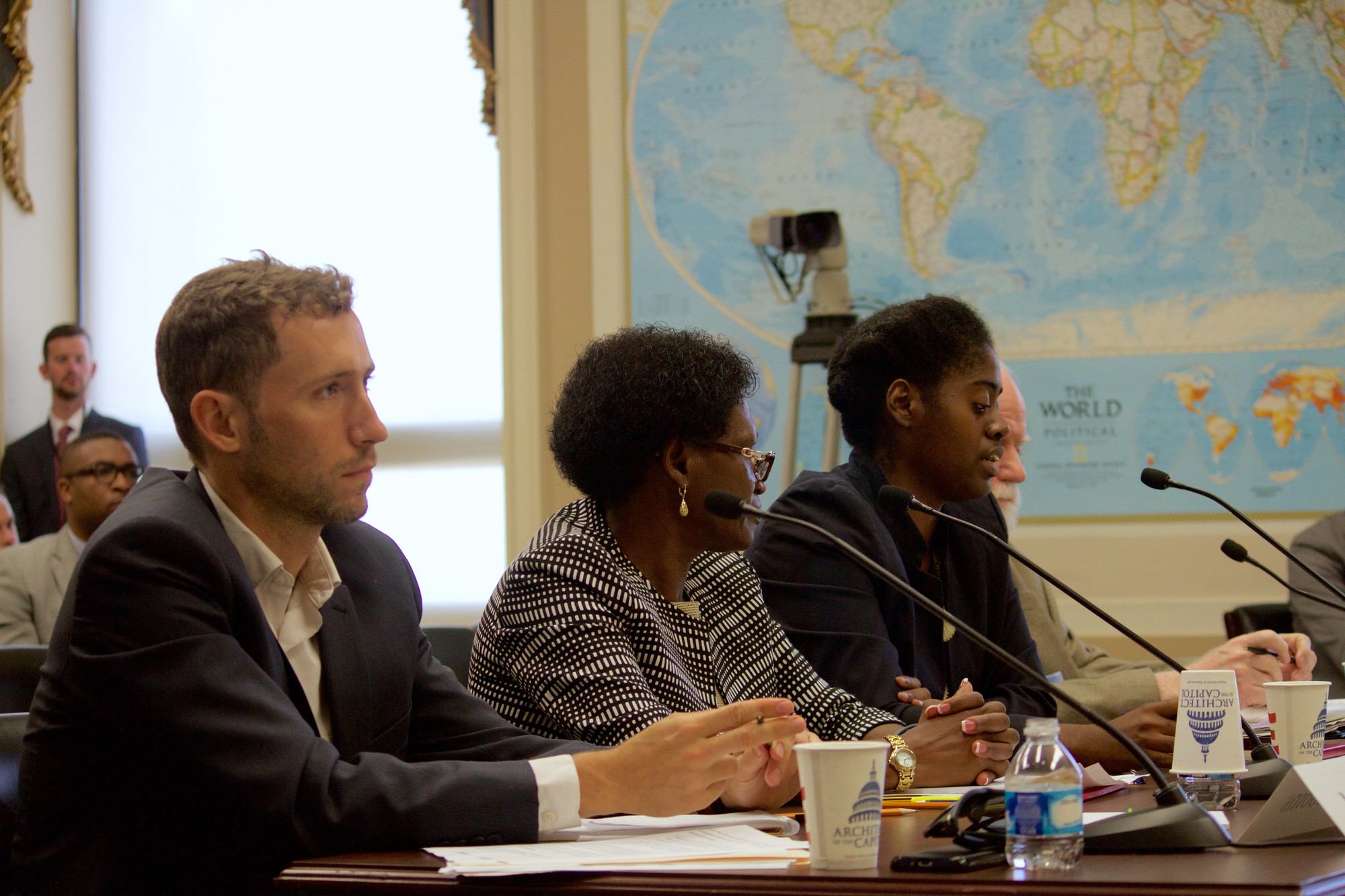
AFSC Public Education and Advocacy Coordinator Alissa Wilson (right) testifies before Congress on election violence in Burundi Carl Roose / AFSC
AFSC has witnessed the effects of election-related violence through our peacebuilding work around the world. From South Africa to Iraq to Indonesia, we have learned a few things about the violence that can flare up during an election cycle – especially in places that are coping with legacies of war and colonialism.
In the middle of all the uncertainty that these transitional periods can bring, one thing we’ve seen over and over again is how reporting on elections doesn’t change. Too often, coverage focuses on conflicts that arise between political parties and the dangers faced by potential voters, rather than the broader context of peacebuilding or the longer history of violence.
We’re taking a chapter from On the Media’s Breaking News Consumer’s Handbook - and the results of our own analysis of last year's election coverage in Guatemala and Burundi - to show saavy readers what to watch out for when they read about election violence:
1. Elections are about hope for the future. Over-reporting on violence means under-reporting on people’s hopes and strategies to improve their societies.
2. Election cycles are short and dramatic, but there are important stories at the heart of reconciliation and peacebuilding too.
3. Look for signs that the journalist just parachuted in for the election cycle. It means they’ve missed the real story: local level grievances that began long before the election and continue long after.
4. Those grievances play out in a broader cultural and historical context – details which won’t be included in the election violence story.
5. Beware signs that the author didn’t even Google the country before writing the election violence story.
6. One throwaway statement in the middle of the story about “decades of civil war and ethnic violence” or a country’s colonial history does not count as providing cultural and historical context.
7. The most recent political scandal is not the only reason that people are angry at the ruling party – but it might be the tip of the iceberg of the real story.
8. What pro- and anti-government forces are doing (or not) in the run up to an election is a distraction from the real story.
9. Election violence is not normal, natural, inevitable or intractable – avoid stories that frame it that way.